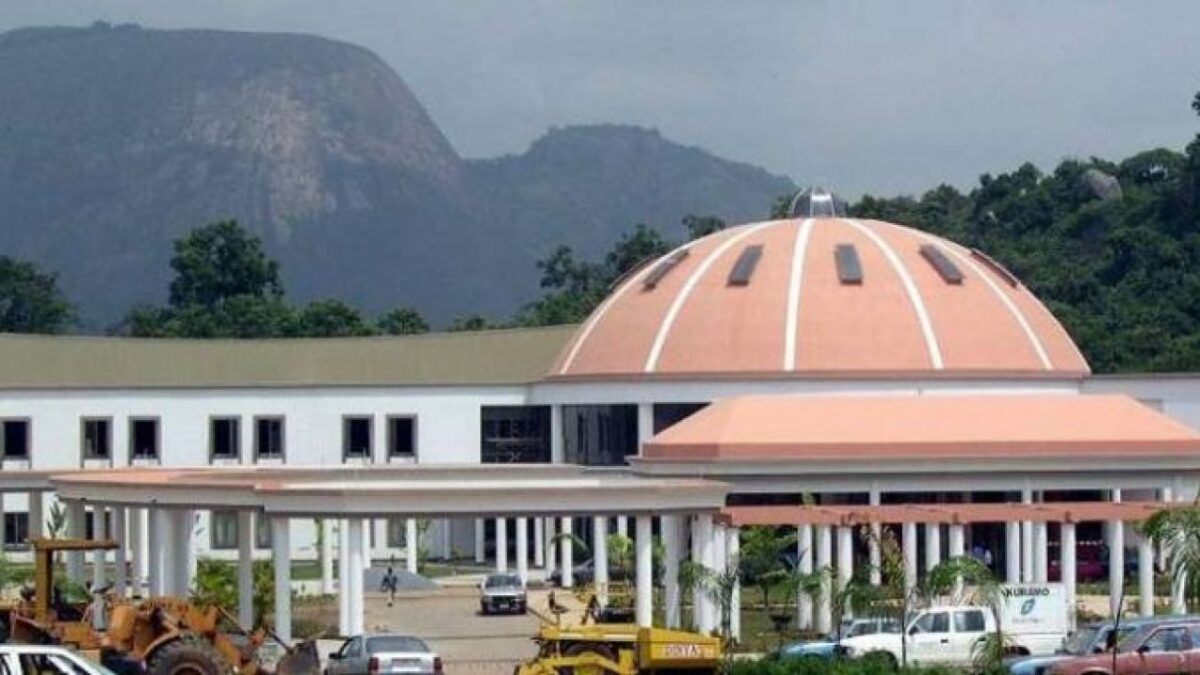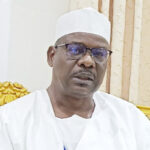This is the 64 billion naira question currently raging in the polity. Every permutation and strategy towards the 2023 elections by political figures and political parties has this question at the background.
From the possible twists and turns this question may take, we may get to know the definitive answer only at the eventual conclusion of the 2023 elections.
2023: APC youths beg Atiku, Saraki, Tambuwal others to return
2023: Umahi’s crisis comments should be probed — AESID
And in a wider, much more significant context perhaps the future of Nigeria as an entity may be decided by how this question pans out in the 2023 elections and beyond.
At issue here is whether the northern zone comprised of the northwest, northeast and north-central, acknowledged without question as collectively the most decisive political bloc with its massive number of voting population and participation in elections could use this power to ensure that a northerner succeeds President Muhammadu Buhari in 2023 thus perpetuating the northern control of the presidential seat.
The southern zone comprising the southwest, southeast and south-south are aware that the north with this advantage at its disposal actually controls the levers of Nigerian politics. Thus there is a very strident clamour that in the interest of national unity and fairness, the north should agree to deploy its political advantage to a southern political candidate for the presidential seat in 2023.
In other wards no northern aspirant should be fielded by any of the two major political parties, the ruling All Progressive Congress (APC) and the opposition Peoples Democratic Party, (PDP) for the 2023 presidential race.
As preposterous as that may sound, that is the proposition that our political class is making as panacea for not just the success of the 2023 elections, but for the continued existence of Nigeria.
The suspicion the south harbours that the north intends to retain power in 2023, was given greater traction by the recent statement credited Mallam Mamman Daura, president Buhari’s nephew in an interview he granted the BBC Hausa serviced. In the interview, he said that having tried zoning or rotation of the presidential seat between the zones, Nigeria should now elect its next president in 2023 by competence and merit.
Had Mamman Daura not been a close relation and confidant of the president, it would have just passed without the hiatus it has continued to generate. It is taken that either Mamman Daura was either speaking the mind of president Buhari or a cabal in the presidency who favour a surreptitious retention of political power in the north in 2023 and beyond.
In a political system with a well- known unsavoury reputation for inconsistencies and opportunism, most of the people who pilloried Mamman Daura on his call were the same persons who made a similar call back in 2015 when their favoured person Goodluck Jonathan was the president. The irony of that is lost on them it appears.
But beyond all this, is the north really able to retain power in 2023 as some northerners readily believe?
Let us look at the objective factors on the ground.
The north still retains its massive advantage both in registered voters and in voting numbers; three fifths of the voting numbers in all the elections conducted in the country since the advent of democracy in 1999 have been recorded from the three northern zones. In other words, the north leads overwhelmingly not only in the number of registered voters for elections but also in the actual voting during elections as well.
This is one of the underlying reasons behind the belief that the north can retain power if it chooses. It is also one of the reasons behind the fear by southerners that the north can deny power to the south in perpetuity if things continue like that.
But I will posit that in the run up 2023, despite the aforementioned advantages, the political dynamics may not necessarily work in favour of the north retaining power for two major reasons.
One, unlike in 2015 the north will not readily have a political figure like Muhammadu Buhari who had a massive and fanatical following running to tens of millions across the three northern zones. There is simply none among the crop of northern political figures that could command such gravitas from northern voters.
The second which is allied to the first is that president Buhari has performed so abysmally that northern voters have become justifiably disillusioned and disappointed not just in him but in most northern political figures.
Northern voters who voted massively and hopefully for Muhammadu Buhari cannot fathom why debilitating poverty, insecurity, massive corruption had to be their lot under a government that is headed by a northerner (the one they used to call mai gaskiya or the trustworthy one) and dominated by northerners.
To make matters worse president Buhari seems neither to demonstrate a capacity to deal with the existential issues of the north nor even to empathically care about the plight of hapless northerners affected by his rule.
Whereas candidate Muhammadu Buhari was a unifying figure in the north in 2015, as president he has become a divisive figure among northerners on economic, political, security and on every other conceivable issue.
Against this background and with all the expectations which accompanied his voting as president in 2015, President Buhari is the greatest de-marketing figure for northern retention of power beyond 2023. Many northerners have come round to the thought that if president Buhari in whom they invested so much hope as the only credible northern political figure left to lead a revival of the fortunes of the north, could turn out to be something contrary to expectation, then there is really no northern political figure worthy of the magnitude of support given to president Buhari.
Coming up to 2023, the north will already be a deeply wounded political entity which will be hard put to cite politically expedient reasons to want to retain power even if it sits on electoral advantages. To put it simply, the northern political advantages in number of registered voters and voting turn out may not be as readily available for use by any northern candidate as it was for Buhari in 2015, all things being equal.
Thus the north can retain power in 2023 only by default which despite the odds against it, is a distinct possibility.
How is this possible?

 Join Daily Trust WhatsApp Community For Quick Access To News and Happenings Around You.
Join Daily Trust WhatsApp Community For Quick Access To News and Happenings Around You.


